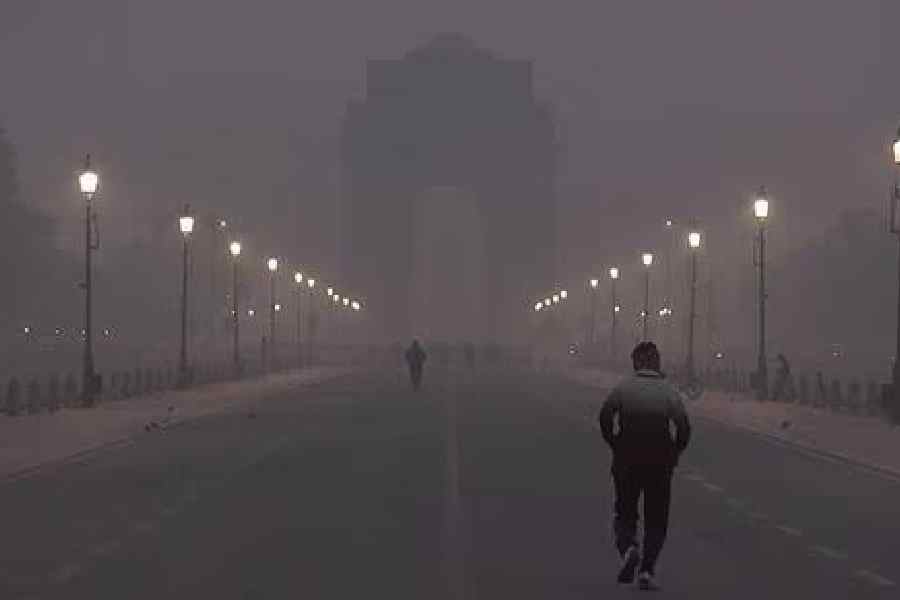As Delhi continues to reel under severe cold conditions, city doctors have said that the elderly residents are skipping their regular appointments, which may have a long-term adverse impact on their health.
Dr Sushila Kataria, senior director of Internal Medicine at Medanta, Gurugram, said it is common for elderly individuals, especially those with chronic conditions like diabetes, heart problems, or tuberculosis, to skip their regular health check-ups during winter months.
"While these patients typically adhere to their appointments throughout the year, the colder months witness a noticeable shift in behaviour, resulting in delayed appointments and missed opportunities to fine-tune medication regimens, potentially leading to complications and more severe health problems," she told PTI.
Delhi has been seeing a drop in minimum temperatures since the beginning of January.
On Tuesday, the national capital recorded a low of 3.5 degrees Celsius. The season's coldest morning was registered here on Monday with a low of 3.3 degrees Celsius, four notches below the average.
Paras Hospital in Gurugram has been seeing a five to 10 per cent rise in the frequency of senior patients missing their visits in the past month.
"The start of the cold wave has coincided with a noticeable rise in the number of senior citizens skipping their routine health examinations over the past few weeks. The impact is seen across various specialties, but particularly in general medicine," Dr RR Dutta, Head of Department, Internal Medicine at Medanta hospital, said.
Talking about the vulnerability of the elderly during the winter months, Dr. Mukesh Mehra, director, Internal Medicine, Max Super Speciality Hospital, Patparganj, Delhi, said due to their compromised immune systems, they are more vulnerable to seasonal illnesses.
These seasonal illnesses are further aggravated by long-term ailments including respiratory issues, diabetes, asthma, heart disease, and hypertension, which frequently get worse in the winter because of the body's adaptations to thermoregulation, he explained.
Kataria said a common reason among these patients missing health check-ups is a lack of concern for their own well-being.
"The introduction of teleconsultations has partially addressed this issue, allowing patients to seek advice from home without the need for transportation or time off from work," she said.
However, the long-term impacts of missing regular appointments are substantial, she noted.
For instance, patients with well-compensated blood pressure and heart disease may neglect crucial instructions on diet and fluid intake, potentially leading to decompensation and heart failure, she said.
"Habitual neglect of follow-up appointments for conditions like diabetes and hypertension heightens the risk of poor control and increased susceptibility to infections," she added.
Dutta said that not only are elderly missing their scheduled appointments, they are not even coming to hospitals in case they have fever or common cold.
The senior doctor said when common illnesses like the seasonal flu go untreated, problems can arise, especially in the elderly.
"These side effects could include worsening pre-existing illnesses, breathing difficulties, and heightened susceptibility to further infections. The early detection and prevention of such issues are helped by routine health check-ups, hence it is alarming to observe that attendance is declining," he added.
Mehra advised the patients to follow dietary regulations and medication routine.
For hypertensive individuals, dosage adjustments may be necessary due to vasoconstriction during winter, he said.
"Regular cardiac check-ups are essential, particularly for those who have undergone cardiac procedures, as winter tends to exacerbate cardiac problems. Diabetic individuals should intensify and modify their treatment plans to accommodate changes in diet and activity levels," he said.
The minimum temperature on Wednesday was recorded at 5.7 degrees Celsius, two notches below the season's average. This was a slight respite from the last few days, since the temperatures were being recorded below 5 degrees Celsius.
Except for the headline, this story has not been edited by The Telegraph Online staff and has been published from a syndicated feed.










